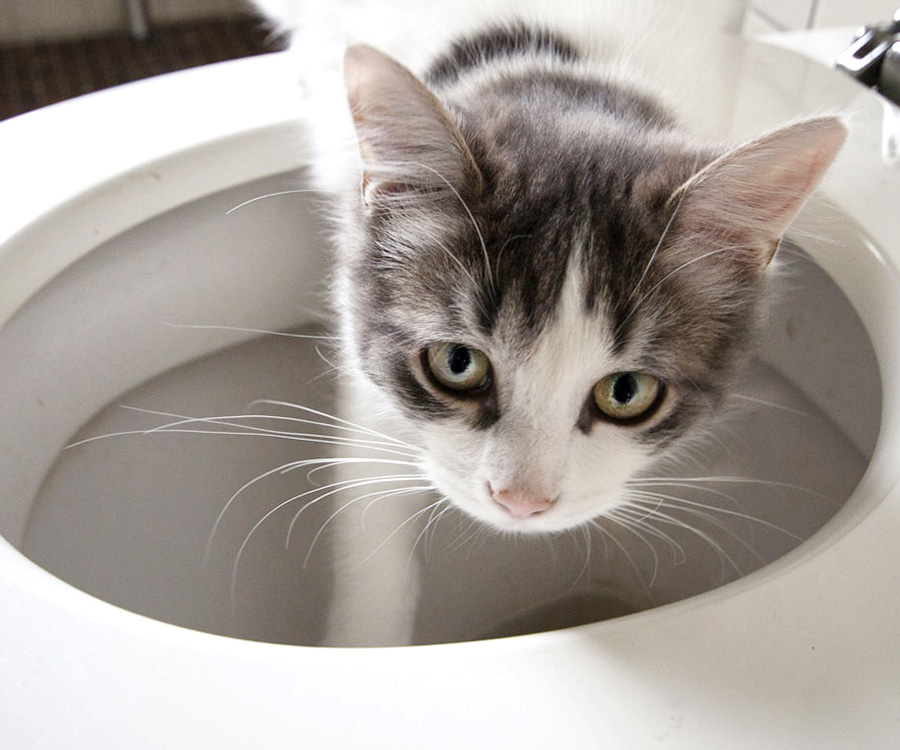Why You Mustn't Flush Cat Poop Down Your Toilet - Preserve Your Plumbing System
Why You Mustn't Flush Cat Poop Down Your Toilet - Preserve Your Plumbing System
Blog Article
Everybody has got their own individual conception on the subject of How to Dispose of Cat Poop and Litter Without Plastic Bags.

Intro
As pet cat proprietors, it's essential to be mindful of exactly how we deal with our feline close friends' waste. While it might seem practical to purge feline poop down the commode, this method can have destructive consequences for both the atmosphere and human wellness.
Alternatives to Flushing
Thankfully, there are safer and more liable methods to throw away feline poop. Consider the following options:
1. Scoop and Dispose in Trash
One of the most typical approach of dealing with pet cat poop is to scoop it into a biodegradable bag and throw it in the garbage. Make certain to utilize a dedicated trash inside story and deal with the waste without delay.
2. Use Biodegradable Litter
Select eco-friendly cat trash made from materials such as corn or wheat. These clutters are environmentally friendly and can be safely gotten rid of in the garbage.
3. Hide in the Yard
If you have a yard, think about burying cat waste in a designated area far from veggie yards and water resources. Be sure to dig deep enough to prevent contamination of groundwater.
4. Set Up a Pet Waste Disposal System
Invest in an animal garbage disposal system particularly developed for pet cat waste. These systems make use of enzymes to break down the waste, minimizing odor and ecological effect.
Wellness Risks
In addition to ecological issues, purging cat waste can also present health and wellness dangers to humans. Pet cat feces may include Toxoplasma gondii, a bloodsucker that can cause toxoplasmosis-- a possibly serious illness, particularly for expectant women and people with damaged immune systems.
Environmental Impact
Purging pet cat poop introduces unsafe virus and bloodsuckers right into the water supply, positioning a considerable threat to aquatic communities. These pollutants can negatively impact marine life and compromise water quality.
Final thought
Accountable animal ownership extends beyond offering food and shelter-- it also involves correct waste monitoring. By avoiding flushing cat poop down the toilet and opting for alternate disposal methods, we can minimize our environmental impact and safeguard human health.
Why You Should Never Flush Cat Poop Down the Toilet
A rose by any other name might smell as sweet, but not all poop is created equal. Toilets, and our sewage systems, are designed for human excrement, not animal waste. It might seem like it couldn’t hurt to toss cat feces into the loo, but it’s not a good idea to flush cat poop in the toilet.
First and foremost, assuming your cat uses a litter box, any waste is going to have litter on it. And even the smallest amount of litter can wreak havoc on plumbing.
Over time, small amounts build up, filling up your septic system. Most litter sold today is clumping; it is made from a type of clay that hardens when it gets wet. Ever tried to scrape old clumps from the bottom of a litter box? You know just how cement-hard it can get!
Now imagine just a small clump of that stuck in your pipes. A simple de-clogger like Drano isn’t going to cut it. And that means it’s going to cost you big time to fix it.
Parasitic Contamination
Believe it or not, your healthy kitty may be harboring a nasty parasite. Only cats excrete Toxoplasma in their feces. Yet it rarely causes serious health issues in the cats that are infected. Most people will be fine too if infected. Only pregnant women and people with compromised immune systems are at risk. (If you’ve ever heard how women who are expecting are excused from litter cleaning duty, Toxoplasma is why.)
But other animals may have a problem if infected with the parasite. And human water treatment systems aren’t designed to handle it. As a result, the systems don’t remove the parasite before discharging wastewater into local waterways. Fish, shellfish, and other marine life — otters in particular — are susceptible to toxoplasma. If exposed, most will end up with brain damage and many will die.
Depending on the species of fish, they may end up on someone’s fish hook and, ultimately on someone’s dinner plate. If that someone has a chronic illness, they’re at risk.
Skip the Toilet Training
We know there are folks out there who like to toilet train their cats. And we give them props, it takes a lot of work. But thanks to the toxoplasma, it’s not a good idea.

As a reader on How to Dispose of Cat Poop and Litter Without Plastic Bags, I imagined sharing that portion was worthwhile. Loved our blog posting? Please share it. Help someone else discover it. Thanks so much for going through it.
Check This Out Report this page